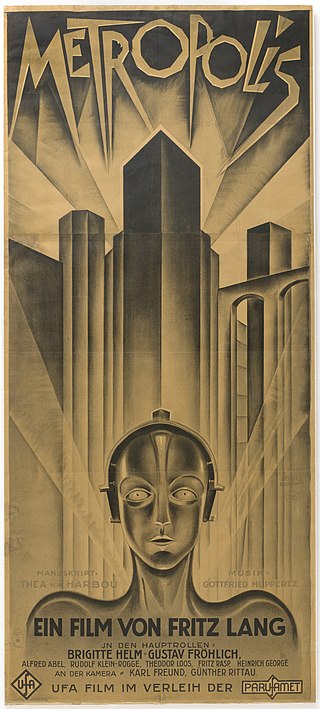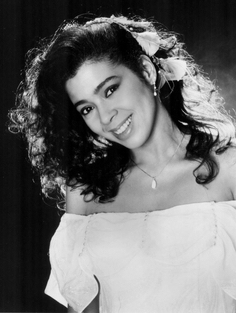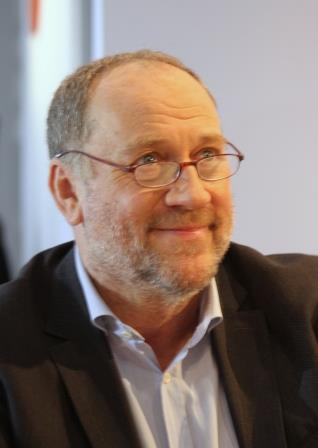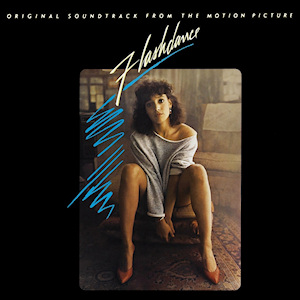
Gaynor Sullivan, known professionally as Bonnie Tyler, is a Welsh singer. Known for her distinctive husky voice, Tyler came to prominence with the release of her 1977 album The World Starts Tonight and its singles "Lost in France" and "More Than a Lover". Her 1977 single "It's a Heartache" reached number four on the UK Singles Chart, and number three on the US Billboard Hot 100.

Metropolis is a 1927 German expressionist science-fiction silent film directed by Fritz Lang and written by Thea von Harbou in collaboration with Lang from von Harbou's 1925 novel of the same name. It stars Gustav Fröhlich, Alfred Abel, Rudolf Klein-Rogge, and Brigitte Helm. Erich Pommer produced it in the Babelsberg Studio for Universum Film A.G. (UFA). Metropolis is regarded as a pioneering science-fiction film, being among the first feature-length ones of that genre. Filming took place over 17 months in 1925–26 at a cost of more than five million Reichsmarks, or the equivalent of about €21 million.

Cynthia Ann Stephanie Lauper is an American singer, songwriter, actress, and activist. Her album She's So Unusual (1983) was the first debut album by a female artist to achieve four top-five hits on the Billboard Hot 100—"Girls Just Want to Have Fun", "Time After Time", "She Bop", and "All Through the Night"—and earned Lauper the Best New Artist award at the 27th Annual Grammy Awards in 1985. Her success continued with the soundtrack for the motion picture The Goonies (1985) and her second record True Colors (1986). This album included the number-one single "True Colors" and "Change of Heart", which peaked at number three. Her cover of the Marvin Gaye song "What's Going On" was a moderate hit in 1987. In 1989, Lauper saw success with "I Drove All Night" and in 1993, had her first dance club hit with "That's What I Think".

"She Bop" is a song by American singer-songwriter Cyndi Lauper, released as the third single from her debut studio album, She's So Unusual (1983). It reached number three on the US Billboard Hot 100 chart in September 1984. Worldwide, the song is her third most commercially successful single after "Girls Just Want to Have Fun" and "Time After Time", and also reached number 46 on the UK Singles Chart and number six on the ARIA Singles Chart. "She Bop" was Lauper's third consecutive top 5 on the Hot 100. She recorded a quieter version of the song for her 2005 album The Body Acoustic.

"Girls Just Want to Have Fun" is a single by the American singer-songwriter Cyndi Lauper, written by Robert Hazard. It was released by Portrait Records as Lauper's first major single as a solo artist and the lead single from her debut studio album, She's So Unusual (1983). Lauper's version gained recognition as a feminist anthem and was promoted by a Grammy-winning music video. It has been covered by more than 30 other artists.

Giovanni Giorgio Moroder is an Italian composer and music producer. Dubbed the "Father of Disco", Moroder is credited with pioneering Euro disco and electronic dance music. His work with synthesizers had a significant influence on several music genres such as hi-NRG, Italo disco, synth-pop, new wave, house, and techno music.

Irene Cara Escalera was an American singer and actress who rose to prominence for her role as Coco Hernandez in the 1980 musical film Fame, and for recording the film's title song "Fame", which reached No. 1 in several countries. In 1983, Cara co-wrote and sang the song "Flashdance... What a Feeling", for which she shared an Academy Award for Best Original Song and won a Grammy Award for Best Female Pop Vocal Performance in 1984.

"Total Eclipse of the Heart" is the lead single by Welsh singer Bonnie Tyler from her fifth studio album, Faster Than the Speed of Night (1983) written and produced by Jim Steinman and recorded in 1982, released as a single by CBS/Columbia in 1983.

Hans Hugo Harold Faltermeyer is a German musician, composer and record producer.

"Time After Time" is a song by American singer Cyndi Lauper from her debut studio album, She's So Unusual (1983). It was released as the album's second single in March 1984, by Epic and Portrait Records. Written by Lauper and Rob Hyman, who also provided backing vocals, the song was produced by Rick Chertoff. It was written in the album's final stages, after "Girls Just Want to Have Fun", "She Bop" and "All Through the Night" had been written or recorded. The writing began with the title, which Lauper had seen in TV Guide, referring to the 1979 film Time After Time.

Lorraine Crosby is an English singer and songwriter. She was the female vocalist on Meat Loaf's 1993 hit single "I'd Do Anything for Love ". Her debut album, Mrs Loud, was released in 2008.

Secret Dreams and Forbidden Fire is the sixth studio album by Welsh singer Bonnie Tyler, released in April 1986 by CBS/Columbia Records as the follow-up to her fifth studio album, Faster Than the Speed of Night (1983). Three years in the making, Secret Dreams and Forbidden Fire was executive-produced by Jim Steinman, who had produced Tyler's previous album. Seven singles were released from the album, with "Holding Out for a Hero" originally being released two years in advance on the movie soundtrack album Footloose. Tyler's album features collaborations with songwriters and guest artists including Desmond Child and Todd Rundgren.

"Holding Out for a Hero" is a song recorded by Welsh singer Bonnie Tyler for the soundtrack to the 1984 film Footloose. It later featured on her sixth studio album, Secret Dreams and Forbidden Fire (1986). The track was produced by Jim Steinman, who co-wrote the song with Dean Pitchford and was a top 40 hit in several European countries, as well as Canada and on the United States Billboard Hot 100. Its 1985 re-release in the United Kingdom reached number two on the UK singles chart and topped the singles chart in Ireland.

Ralphi Rosario is an American house musician and founding member of the influential Chicago DJ group Hot Mix 5.

"Girls of Summer" is a single by American hard rock band Aerosmith. Released in 2002 as the only single from the band's 2002 greatest hits album, O, Yeah! Ultimate Aerosmith Hits, the song was written by lead singer Steven Tyler, guitarist Joe Perry and professional songwriter Marti Frederiksen in Hawaii, following the end of the Just Push Play Tour. The song, described by the band's frequent collaborator Jack Douglas as "George Harrison meets the Beach Boys", reflected the laid back atmosphere of its composition, where according to Tyler, he along with Perry and Fredericksen utilized Pro Tools and just started flailing to see which vibe would come out.

Flashdance: Original Soundtrack from the Motion Picture is the soundtrack to the 1983 film Flashdance, which tells the story of Alex Owens, a welder and exotic dancer who dreams of becoming a professional ballerina. The nightclub performances by Alex and her co-workers and other set pieces involving training and auditioning provided opportunities to present the songs that would make up the soundtrack album. The film's music supervisor, Phil Ramone, made selections that he felt were the best fit for their respective scenes, and composer Giorgio Moroder contributed additional tracks in the process of scoring the film. One of his contributions, "Flashdance...What a Feeling" by Irene Cara, was released as a single in March 1983, weeks before the film's April 15 release, and eventually spent six weeks at number one on the Billboard Hot 100. The soundtrack was released on April 11, 1983 by Casablanca Records.

Bitterblue is the eighth studio album by Welsh singer Bonnie Tyler. It was released on 11 November 1991, through Hansa Records. Bitterblue is a pop rock album, described by Dieter Bohlen as "more commercial" than her previous albums. Bohlen began working with Tyler in early 1991, writing and producing multiple songs for the album. Bitterblue also features compositions from Albert Hammond, Nik Kershaw and Giorgio Moroder.

Bonnie Tyler: The Best is a compilation album by Welsh singer Bonnie Tyler. It was released in 1993 by Columbia in the UK and by Versailles Records in France. Both issues feature the same front cover, but they do not have matching track lists. In 1995, the album was reissued in the UK under the title The Definitive Collection, featuring the original track listing and a bonus CD with five more tracks.

The Best Is Yet to Come is the eighteenth studio album by Welsh singer Bonnie Tyler. It was released on 26 February 2021 through earMUSIC. It is Tyler's fourth album with producer David Mackay, with whom she recorded her previous album Between the Earth and the Stars (2019) and her earliest albums The World Starts Tonight (1977) and Natural Force (1978).



















